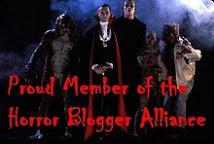The high-concept premise behind the film is a thing of beauty. A rich businessman with no sense of humor and little compassion for others is given an odd gift by his younger and wilder brother: the chance to play a game run by a mysterious company. Why would he play this game? According to his brother, it's because it will make his life "fun". But, in true Hollywood fashion, the game enters and a nightmare follows with it.
The resulting carnage follows said rich man - Nicholas Van Orton, as played by Michael Douglas - as he falls into a series of elaborate and dangerous scenarios that involve death, drugs, potential drowning, and even guns. As the film moves throughout San Francisco there are more than enough moments that should make a first time viewer roll their eyes and scoff about how unrealistic the film is. I'm certainly of the mindset that patience pays off with this film, but there will undoubtedly be some who won't make it to where the film is going or won't be on-board with the conclusions when they get there. I of course won't say that those people are wrong - that would be rude - but I might secretly wonder if their life, too, could use a little fun.
It's not everyone's type of fun, because this is one macabre film. The most masterful touch by director David Fincher might be the connection between Nicholas and his father, who committed suicide in front of his young son. These events are recreated through dreamlike flashback sequences early in the film that are incredibly eerie and seem slightly out of place at first glance. But, now that I've seen the film plenty of times, I can't understate how pertinent and marvelous these sequences are in this film. They are the backbone of everything Fincher and company are trying to say here, and they still send chills down my spine 15 years later.
The most disturbing reality in the film is that this company - Consumer Recreation Services, whose initials start to haunt Nicholas throughout his game - seems to have taken complete control of this man's life. We watch him lose his connections and resources throughout the film, and he loses power over his world by the hour. It's a chore to watch at times as the man's life continues to get worse and worse, but the lucky thing for us viewers is that Nicholas Van Orton isn't really a likeable character. Douglas can do desperate with the best of 'em - this would play wonderfully next to his disgruntled vigilante film Falling Down - but the humorless rich dude act doesn't make us like him much early in the film.
Therein lies the tragic comedy aspect of our film. Fincher introduces us to a man we shouldn't like, then tortures him until we see him as a sympathetic character. As the trials that Nicholas must face become more elaborate, the film reveals the fantastic allegory that is hidden under its dreary exterior. I can't say too much about where the film goes with Nicholas' plight - this is one of those films that I get nervous talking about, because I think it's so wonderful that I'd never ever dream of spoiling it for anyone - but I do recommend that the viewer loosen their grip on reality and let the chaotic events that make up The Game run their course before they jump to any conclusions.
It is often lost in the shuffle when Fincher's early films are discussed - it doesn't have the grime of Seven, the attitude of Fight Club, or the "Wait, that girl grows up to be the Twilight girl?" of Panic Room - but The Game still strikes me as Fincher's most profound work. It is a truly haunting film with what I consider to be one of the most perfect endings ever put on film. It takes some getting used to - I'm pretty sure us 16 year olds in that 1997 movie theater thought we were smarter than it when it first happened to us - but it makes more and more sense every time I see this movie. I'm in on the joke now, and I'm glad that I've got a grin that's inspired by this meticulously plotted mind-bender.
(OK, there's one more thing I just have to say. It's about the ending. I suppose it could be construed as a SPOILER, but I'm giving no details.
The movie doesn't work if the ending goes the other way. I know there are people who believe otherwise, but I will defend this until my last breath. It would make perfect sense for the film to end with the opposite ending, but that ending wouldn't make the film have any kind of relevance. I'm not just talking about relevance from a shock standpoint, I'm saying there would be no relevant reason for the film to exist. There are those who say the on-screen ending is an "easy way out", but in my book the movie becomes about 97% less daring if it switches the ending. The ending, as is, gives the movie its flavor.)
















1 comment:
A film the Masha and Fasha will watch everytime it comes across the channel surfing screen. Still catches and holds your attention, even if we know the ending, or maybe because we know the ending! Nice review Mike!
Post a Comment